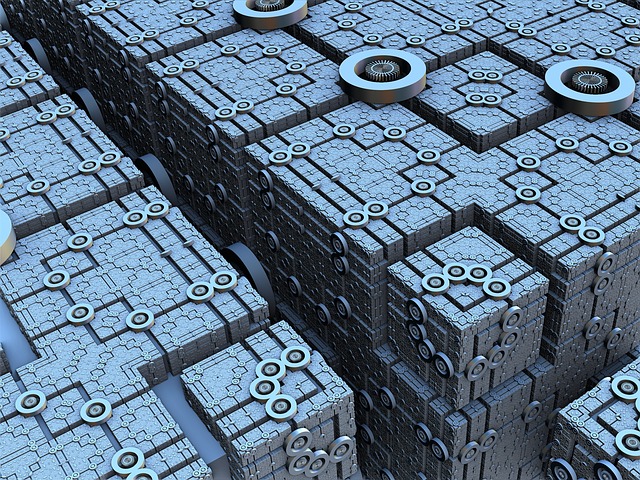
If we were to make a survey on what super-ability an individual would like to have, being able to predict the future will probably be among those on top of the list. And for scientists using quantum systems, this would be an extremely useful ability, especially because one of the biggest stumbling blocks they have been trying to get around is knowing when quantum decoherence — the process where quantum systems break down and become too randomized to the point of being useless — will happen. If they only knew how to predict this, quantum technology will easily get the jumpstart it needs to become a reality.
Thankfully, the gift of ‘foresight’ is not necessary because University of Sydney quantum physicists headed by Professor Michael J. Biercuk have figured out a way to predict the future of quantum systems. Their research has been published in the journal Nature Communications.
Similar with how humans make use of predictive countermeasures, quantum systems likewise require some kind of predictive approach to keep them from failing. But there’s an extra challenge. Unlike most situations which follow regular rules, quantum systems don’t, and this is what makes them much harder to deal with.
Professor Biercuk made use of a tennis ball to explain what was happening. He says that when we play tennis, we can predict where the ball will land simply by observing it. And this is possible because the ball moves according to known physical laws, in this case, gravity. The question is, will we still be able to make an accurate guess of where the ball will land if the rules suddenly changed, then changed again and again, without following any pattern?
This is how quantum systems behave. They disintegrate at random. They do it in fractions of seconds. And when they get to be observed, they lose their ‘quantumness’ — their ability to be in more than one state at a time — which makes them useless.
So what did the team do about this quantum challenge? They turned to machine learning. By feeding a computer an algorithm that provided it with all possibilities relevant to quantum decoherence, they found that regardless of how random quantum systems might appear, there was always sufficient data for the computer to predict how qubits will change and when they would decay.
In contrast with regular computer ‘bits’ which can only represent either ‘1’ or ‘0’ to process data, ‘qubits’ (or quantum bits) can represent a ‘1’ or a ‘0’, or both ‘1 and 0’ at the same time — known as superposition.
The team then compared the computer’s predictions with real instances when qubits failed, and they discovered to their amazement how accurate the predictions were. More than that, they found that they can make compensations before the changes take place so they can prevent the system from failing. Armed with this information, they were able to successfully prolong the quantum state and extend the usefulness of qubits.
According to Professor Biercuk: “Our techniques apply to any qubit, built in any technology, including the special superconducting circuits being used by major corporations”. He also adds that, “We’re excited to be developing new capabilities that turn quantum systems from novelties into useful technologies. The quantum future is looking better all the time.”
And with that, a quantum leap has been made.
- Bulenox: Get 45% to 91% OFF ... Use Discount Code: UNO
- Risk Our Money Not Yours | Get 50% to 90% OFF ... Use Discount Code: MMBVBKSM
Disclaimer: This page contains affiliate links. If you choose to make a purchase after clicking a link, we may receive a commission at no additional cost to you. Thank you for your support!

Quantum. Breakthrough?
I read, I listen, & study, I think. no luck, or perhaps capacity. I just have no universal handle for this thing.
It has the feeling of a subject journalists don’t get either, but fake it.
I would be so grateful for a writer who could word-shape some kind of handle for my thinking on “quantum.”
-Bewildered One-
https://www.youtube.com/watch?v=ZpIv-c6cVME
I don’t understand the meaning of the term ‘useful’ in this article. To the best of my knowledge, it’s not typically a term used in physics. It seems as if the (unidentified) writer is so focused on the technological applications of, for lack of a better term, sustainable quanta that he uses language of utility when ontological language would be clearer and more appropriate. I think there’s an inherent value in distinguishing between what we know and what we can do with what we know, even when, as us very, very often the case, there’s no clear boundary separating the two. Or am I missing something?
If the journalist understood his subject, it would be a more interesting article. As it is it reads like a college sophomore’s attempt at sounding knowledgeable.
To be able to under what circunstances qubits decohere would allow the construction of more robust quantum computers. The applicability of a quantum network could in theory revolutionize many facets of commerce and culture. Imagine a network that is impossible to hack. In fact, in such a system, the legislative branch could be rendered obsolete. We coukd have a true virtual or e-democracy. Who can represent you better than you? Of course, we will still need an enlightened and engaged citizenry. Hopefully, AI will help make this transition.
“Of course, we will still need an enlightened and engaged citizenry.”
Lol maybe the AI can “correct” people when they suffer from unintentional ignorance. Sounds fun!
.
My understanding of superposition is that the very act of measurement causes the superposition to collapse,
If so, then how does a quantum computer capture the alleged multiple values of a qbit?